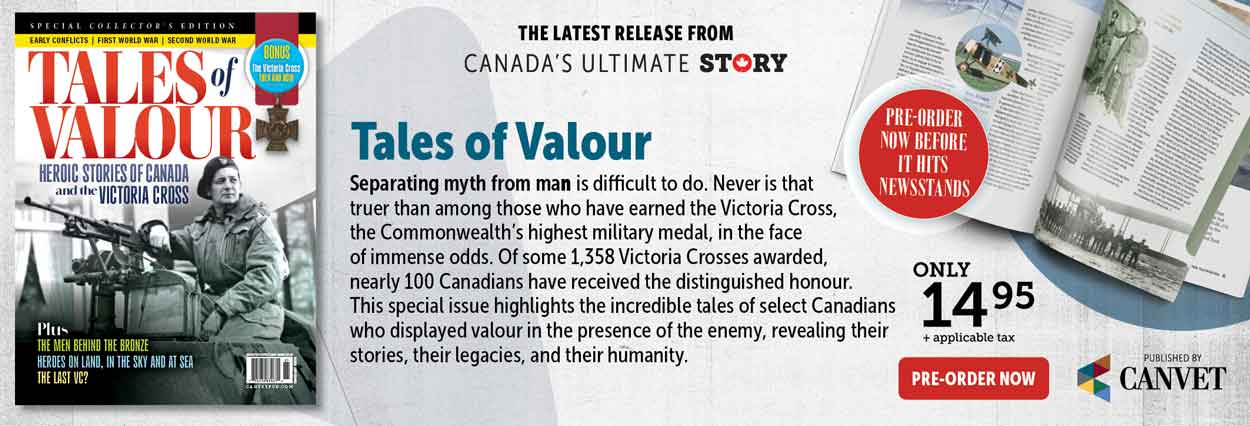Quietly, and almost without notice, the great Canadian military experiment in officer education in 1997 is in danger.
Last fall, CANFORGEN (Canadian Forces General Order) 156/05, issued by the Department of National Defence’s Assistant Deputy Minister (Human Resources-Military), announced a new “continuing officer education plan.” The plan would allow the forces to accept new officers who do not possess a university degree as long as they commit to getting one. That plan could effectively cancel the decision taken by National Defence Minister Doug Young in 1997 that all Canadian officers, with very few exceptions, would be required to have university degrees as a condition of their commission.
In taking that step in 1997, Young was completing a reform process first mooted in 1946 that would have brought the Canadian military into line with that of the United States, where a university degree has been a requirement for commission for at least a century. There were several very good reasons why the Canadian Forces were thought to need this change.
First, Canadian society itself is rapidly becoming a society of post-secondary education degree holders. It is not a good thing in itself to have a military that is less educated than the population in general because it undermines popular confidence in and respect for the military. It hinders serious discussion and debate of matters scientific, technical and even philosophical between civilians and military leadership. It puts the military at a distinct disadvantage when competing for the public’s attention and the government’s dollars.
Second, the armed forces of our principal allies are also increasingly highly educated. It is essential that Canada’s military leaders meet and deal with our potential partners in both war and peace enforcement operations on an even intellectual plane. Not to do so courts disrespect at best, misunderstanding at worst. The Canadian Forces must be intellectually relevant if they are to continue to hold the trust of our military partners.
Third, although a university degree in and of itself is no guarantee of honesty, loyalty, integrity, charisma, courage, or instinctive ability to make very difficult decisions under pressure, it is one important measure of intellectual ability. It is an additional measure of a person’s ability to learn. Success in war depends upon adaptability. University education measures adaptability.
Finally, university education demonstrably helps to equip people how to think through a problem, how to evaluate information, how to approach a task in an organized and logical fashion. There is a reason why every single study that has ever been made on the subject shows without any shadow of a doubt that people who hold university degrees hold better jobs, make much more money, and have a much higher degree of job satisfaction than those who don’t. Is there anyone left today in Canada who doesn’t believe that?
What the Canadian Forces did after 1997 was to fundamentally restrict future commissions to individuals who either graduated from Royal Military College–and were thereby commissioned–or from a civilian university. In the latter case the potential officer was required to take a year of Canadian Forces officer training before commission.
Under the recent order, the new policy opens the doors to Canadians who do not hold a degree but declare that they intend to get one, even if it takes as long as nine years after their commission.
It is true that, under the new policy, no one will be allowed to climb past the rank of captain without a degree, and that both time off (up to a year) and the active support of the Canadian Defence Academy will be proffered to those who are commissioned without degrees. But the fact remains that from now on it will be possible, and indeed it is highly likely, that Canada’s military forces will once again host a significant contingent of commissioned officers–lieutenants and captains–whose highest formal educational achievement will be a high school diploma.
The Canadian Forces have done this because they face a recruiting and retention crisis that has the potential of further hollowing out the military just at a time when a new chief of defence staff and an active new team of CF leaders are determined to shove, push, or drag the Canadian government into reviving a near dead institution.
The main problem with all their highly touted plans to expand the forces, provide new equipment, create new doctrine, and give back to Canada the ability to act militarily in the international arena, is that too few recruits are coming in the door. Those who do run into mountains of red tape and inexplicable delays, to the point where a large number simply lose interest. It takes roughly eight to 10 recruits in the front door to produce a single trainee. At the same time, thousands of retirements loom.
In a nation of 32 million people, it ought to be no trick at all to maintain a military force of 65,000 regulars and 35,000 reservists. Advertise properly, create healthy incentives to join, iron out the many kinks in the processing of recruiting, give them the training they want and need, and the adventure they seek, and provide a life that has meaning for them and their families. Is that so hard to figure out?
Apparently it is.
Because the Canadian Forces has decided to take an easier way out–simply lower the standards.
Advertisement





















